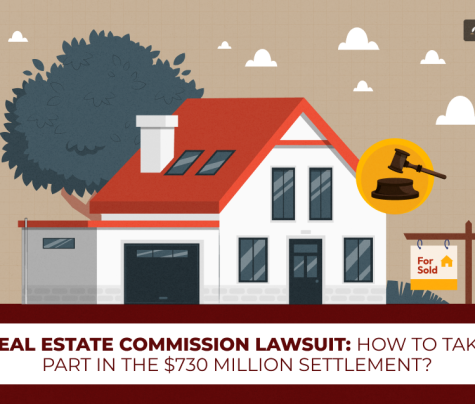
If you have been hearing a lot of buzz around Mr. Cooper Class Action Lawsuit recently, you are not the only one!
Mr. Cooper, formerly known as Nationstar Mortgage, is one of the largest home loan service providers in the United States. Managing thousands of loans, the company plays a significant role in helping individuals finance their dream homes.
However, like many large corporations, it has faced misconduct allegations, leading to serious consumer concerns.
Understanding class action lawsuits is crucial for protecting your rights as a borrower. These lawsuits unite individuals with similar claims against a company’s unlawful practices. Furthermore, it provides a fair chance to seek justice and compensation.
In the case of Mr Cooper Class Action Lawsuit that has been going on since 2020, for example, some allegations include mishandling payments, charging illegal fees, and failing to meet its obligations.
With this article, I will shed light on the lawsuit, its implications, and the steps affected homeowners can take. Whether you’re impacted or curious, this blog will help you understand this important legal issue.
Background of Mr. Cooper
Mr. Cooper, formerly known as Nationstar Mortgage, is a leading name in the home loan servicing industry in the United States.
Established in 1997, the company rebranded to Mr. Cooper in 2017 to reflect a more customer-focused approach. It manages over 3 million home loans, making it one of the largest mortgage servicers in the country.
With a mission to simplify the homeownership process, Mr. Cooper plays a crucial role in helping families manage their mortgages.
However, the company has faced its share of controversies. Over the years, numerous consumers have raised concerns about unexpected fees, payment mismanagement, and lack of transparency.
Complaints often include delayed or incorrect payment processing, leading to penalties or credit score damage. For instance, in 2020, Mr. Cooper faced legal challenges related to improper handling of escrow accounts, which caused confusion and financial distress for many homeowners.
The transition from Nationstar Mortgage to Mr. Cooper was more than a name change—it symbolized an effort to rebuild the company’s reputation and focus on improving customer service. While the rebranding aimed to leave past issues behind, some problems persisted, culminating in class action lawsuits.
What is a Class Action Lawsuit?
A class action lawsuit allows individuals with similar claims to unite against a common defendant.
It provides several benefits for plaintiffs: shared legal costs, streamlined court proceedings, and the potential for larger settlements.
In the Mr. Cooper case, this approach ensures that affected borrowers have a collective voice to challenge the company’s practices, especially when individual claims might seem too small to pursue independently.
Overview of the Mr Cooper Class Action Lawsuit

The class action lawsuit against Mr. Cooper stems from allegations of unlawful practices in its home loan servicing operations.
Borrowers have accused the company of mishandling payments, charging illegal fees, and breaching mortgage contracts. Additionally, they were unlawfully charging a processing fee termed “pay to pay fees.” These issues caused financial stress for homeowners and put some at risk of foreclosure.
The lawsuit was triggered by repeated complaints from customers who experienced issues such as delayed payment postings, incorrect billing statements, and unauthorized fees.
For instance, some borrowers reported being charged for services they never agreed to or received, while others claimed that mismanagement of their escrow accounts led to unexpected shortages and penalties.
Additionally, the case is central to allegations of violating federal laws, including the Real Estate Settlement Procedures Act (RESPA) and the Truth in Lending Act (TILA). The timeline of the lawsuit reveals a growing pattern of dissatisfaction. Additionally, complaints began surfacing years ago but intensified in recent years as more homeowners came forward.
In 2022, the case gained momentum when a group of borrowers filed a class action lawsuit, seeking compensation and demanding accountability from Mr. Cooper. Since then, legal proceedings have been ongoing, with hearings and settlements still under review.
Convenience Fee Lawsuit
The Convenience Fee Lawsuit against Mr. Cooper focuses on allegations that the company charged borrowers illegal fees for making mortgage payments online or over the phone.
These fees, often called “convenience fees,” are typically meant to cover the cost of expedited payment processing. However, plaintiffs in the lawsuit argue that these charges were excessive, unnecessary, and, in some cases, violated state and federal laws.
Furthermore, according to the lawsuit, these convenience fees were not disclosed upfront in loan agreements, leaving many homeowners unaware of the additional costs.
Borrowers claimed they were often left with no alternative but to pay these fees to avoid late payments or other penalties. In many cases, the fees ranged from $5 to $15 per transaction, adding a significant financial burden over time.
Additionally, the lawsuit asserts that such practices may violate consumer protection laws, such as the Real Estate Settlement Procedures Act (RESPA) and state-specific regulations prohibiting unauthorized fees. For affected borrowers, these charges highlight a broader issue of transparency in the mortgage servicing process.
Data Breach Lawsuit
The Data Breach Lawsuit stems from a significant cybersecurity incident at Mr. Cooper, potentially exposing sensitive customer information.
In this lawsuit, borrowers allege that the company failed to adequately protect their personal and financial data, leaving them vulnerable to identity theft and fraud.
The breach reportedly compromised names, addresses, Social Security numbers, and account details.
Additionally, victims of the breach claim they were not promptly notified, which delayed their ability to take protective measures like credit monitoring or freezing their accounts.
This lawsuit raises concerns about the responsibilities of mortgage services in safeguarding customer data.
Federal laws, including the Gramm-Leach-Bliley Act (GLBA) and state data protection regulations, require financial institutions to implement robust security measures to protect consumer information.
Moreover, for affected customers, the breach caused anxiety and highlighted the risks associated with sharing personal data with large corporations.
Many seek compensation for damages, including the costs of identity protection services and potential financial losses.
Legal Analysis and Consumer Rights
The allegations against Mr. Cooper highlight potential violations of several key laws designed to protect consumers from unfair practices in the mortgage industry. Understanding these laws and your rights can help you navigate such situations effectively.
Applicable Laws Violated
The lawsuit alleges violations of the Real Estate Settlement Procedures Act (RESPA), which ensures transparency in mortgage servicing, and the Truth in Lending Act (TILA), which protects consumers from deceptive lending practices.
Additionally, the Consumer Financial Protection Act (CFPA), enforced by the Consumer Financial Protection Bureau (CFPB), prohibits unfair, deceptive, or abusive acts by financial institutions.
Moreover, these laws require mortgage servicers to provide clear information, avoid hidden fees, and act in good faith when managing borrower accounts.
Consumer Protections Under Federal and State Law
Federal laws like RESPA and TILA mandate that servicers handle payments accurately. Additionally, they also demand that organizations and platforms disclose all fees upfront and manage escrow accounts responsibly.
Furthermore, many states also have additional regulations to prevent unlawful fees and ensure timely communication. If these rights are violated, borrowers can file complaints with the CFPB or seek legal action to recover damages.
Broader Lessons for Homeowners
I know it can feel overwhelming when it comes to understanding the complexities of home loan services. However, understanding your rights and recognizing potential issues can protect you from unfair practices.
As a result of the Mr. Cooper Class Action Lawsuit, there are several things that homeowners understood.
Here are some key lessons to help homeowners stay informed and empowered.
How to Identify Unlawful Practices
Unlawful practices in home loan services often show up as unexpected fees, unexplained payment changes, or delayed payment posting.
Therefore, if your servicer adds charges that aren’t in your contract or mishandles your escrow account, it’s a red flag. So, it is important that you pay close attention to your monthly statements, and don’t hesitate to ask questions if something seems off.
Tips for Resolving Disputes with Loan Servicers
When a problem arises, start by documenting everything—emails, payment confirmations, and any correspondence with your loan servicer. Contact their customer service team to report the issue, keeping detailed notes of the interaction.
If the service doesn’t resolve the dispute, escalate the matter by filing a complaint with the Consumer Financial Protection Bureau (CFPB) or your state’s attorney general’s office.
Additionally, you can also consult a housing counselor approved by the U.S. Department of Housing and Urban Development (HUD) for additional guidance.
Understanding Mortgage Terms and Seeking Legal Advice
Finally, you should review all the terms and conditions carefully before signing any mortgage agreement.
If the language seems too technical or unclear, consult a real estate attorney to ensure you understand your obligations and rights.
Additionally, legal advice can also be invaluable when dealing with disputes or potential lawsuits. This is because it helps you build a stronger case.
Which Lawyer Should You Seek in a Similar Case?

Hiring the right lawyer is critical to protecting your rights if you face issues like unlawful fees, mishandled payments, or data breaches with your mortgage servicer.
These cases often involve complex financial regulations. Therefore, it is essential that you seek legal counsel with expertise in consumer protection and mortgage servicing laws.
Experience in Consumer Protection Laws
Firstly, look for a lawyer specializing in consumer protection with experience handling cases related to the Real Estate Settlement Procedures Act (RESPA) and the Truth in Lending Act (TILA).
These laws regulate mortgage practices and are often central to lawsuits involving loan servicers. Additionally, attorneys familiar with these statutes can identify violations and build a strong case.
Expertise in Class Action Lawsuits
Secondly, a class action attorney is a good choice if your issue aligns with broader complaints from other borrowers.
These lawyers specialize in representing groups of people against large corporations, which can increase the chances of holding the company accountable.
Furthermore, they also typically work on a contingency basis, meaning you won’t have to pay unless you win the case.
Reputation and Track Record
Research attorneys or law firms with a proven history of success in similar cases.
Look for client reviews, settlements won, and experience dealing with major corporations like Mr. Cooper.
National law firms often have the resources to handle complex cases, but local attorneys might offer a more personal touch.
Consultation and Fees
Many lawyers offer free consultations. Use this opportunity to discuss your case and understand their fee structure. Transparency is key—ask about costs upfront to avoid surprises.
How Does the Mr. Cooper Class Action Lawsuit Affect Mortgage Servicing?
The Mr. Cooper Class Action Lawsuit has the potential to reshape how mortgage servicers operate, especially in terms of transparency and consumer protection.
If the lawsuit leads to a settlement or court ruling, it could create significant changes in the mortgage servicing industry, affecting how companies handle payments, fees, and communication with borrowers.
Increased Accountability for Mortgage Servicers
One of the main impacts of this lawsuit is the increased scrutiny of mortgage servicers like Mr. Cooper. If the class action is successful, it could force the company to change its practices to avoid further violations.
This could include clearer communication about fees, better handling of payments, and more accurate billing statements. Mortgage servicers may also be required to implement better systems for managing escrow accounts and other important loan-related functions.
Greater Consumer Protection
This lawsuit emphasizes the importance of consumer rights in the mortgage industry. If successful, it could set a legal precedent that empowers homeowners to take action against servicers who engage in unlawful practices.
This could encourage other servicers to prioritize transparency and fair treatment to avoid similar legal issues. Borrowers would benefit from stronger protections against unfair fees, mishandling of payments, and potential breaches of mortgage contracts.
Industry-wide Changes
The lawsuit could trigger broader industry-wide reforms. Mortgage servicers may be required to update their processes and provide borrowers with more clarity about loan terms, fees, and changes to payment schedules.
These changes could lead to a more transparent and trustworthy mortgage servicing environment, reducing consumer confusion and frustration in the long term.
Read Also:
- Smoothstack Lawsuit: Beware of Unlawful Wage Scheme and Employment Contracts
- 72 Sold Lawsuit Exposed the Deceptive Marketing Strategies of Real Estate Agents!
- Kennedy Funding Lawsuit and the Exploitation of Arkansas Statute of Frauds











0 Reply
No comments yet.